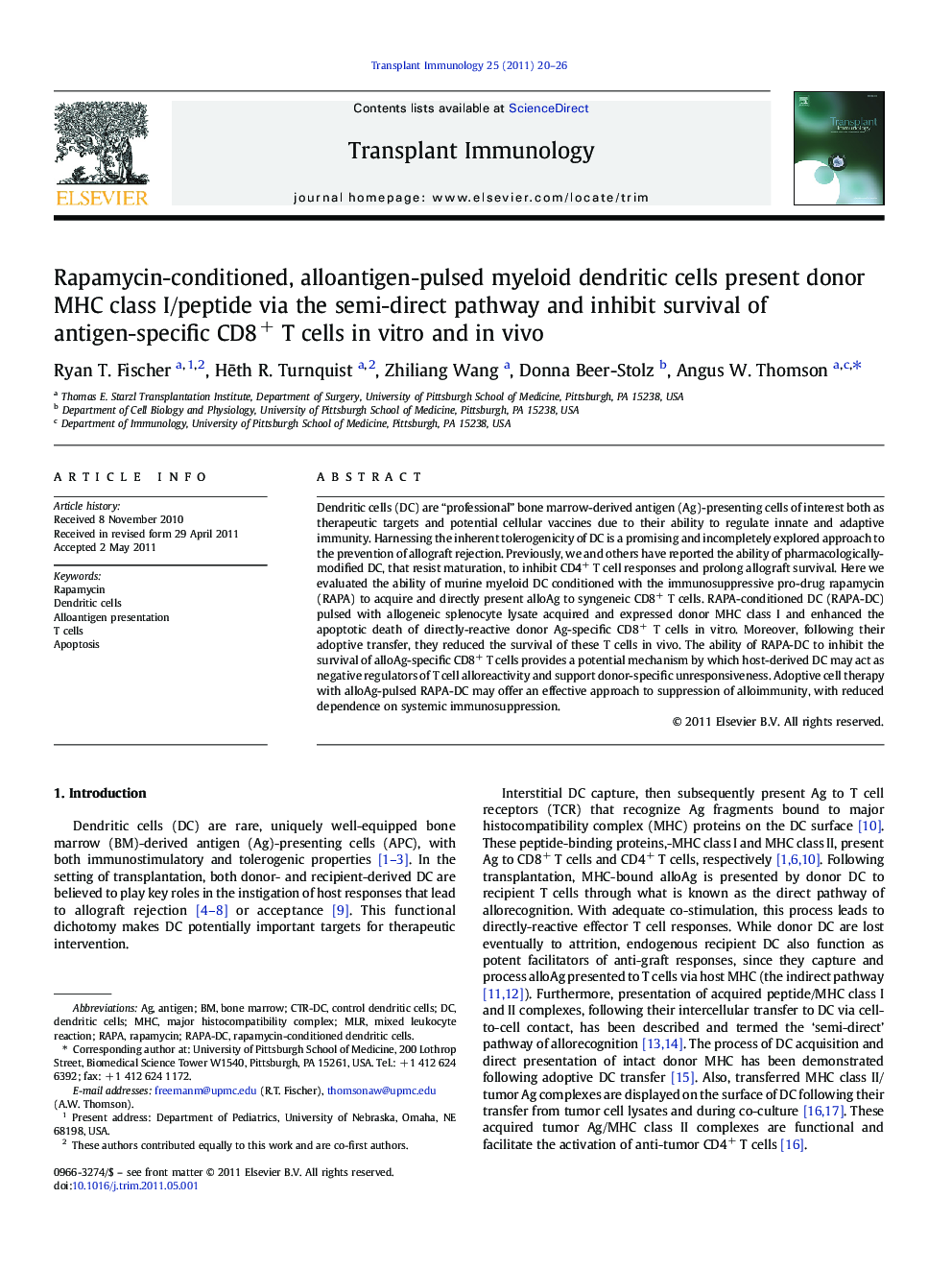| Article ID | Journal | Published Year | Pages | File Type |
|---|---|---|---|---|
| 3392186 | Transplant Immunology | 2011 | 7 Pages |
Dendritic cells (DC) are “professional” bone marrow-derived antigen (Ag)-presenting cells of interest both as therapeutic targets and potential cellular vaccines due to their ability to regulate innate and adaptive immunity. Harnessing the inherent tolerogenicity of DC is a promising and incompletely explored approach to the prevention of allograft rejection. Previously, we and others have reported the ability of pharmacologically-modified DC, that resist maturation, to inhibit CD4+ T cell responses and prolong allograft survival. Here we evaluated the ability of murine myeloid DC conditioned with the immunosuppressive pro-drug rapamycin (RAPA) to acquire and directly present alloAg to syngeneic CD8+ T cells. RAPA-conditioned DC (RAPA-DC) pulsed with allogeneic splenocyte lysate acquired and expressed donor MHC class I and enhanced the apoptotic death of directly-reactive donor Ag-specific CD8+ T cells in vitro. Moreover, following their adoptive transfer, they reduced the survival of these T cells in vivo. The ability of RAPA-DC to inhibit the survival of alloAg-specific CD8+ T cells provides a potential mechanism by which host-derived DC may act as negative regulators of T cell alloreactivity and support donor-specific unresponsiveness. Adoptive cell therapy with alloAg-pulsed RAPA-DC may offer an effective approach to suppression of alloimmunity, with reduced dependence on systemic immunosuppression.
Research highlights► Rapamycin-conditioned DC acquire and present alloantigen to syngeneic CD8+ T cells. ► These DC enhance apoptosis of directly-reactive donor antigen-specific CD8+ T cells. ► They reduce survival of alloantigen-specific CD8+ T cells in vivo. ► This mechanism may underlie negative regulation of T cell reactivity by host DC. ► Alloantigen-pulsed DC exposed to rapamycin may offer therapeutic potential.
